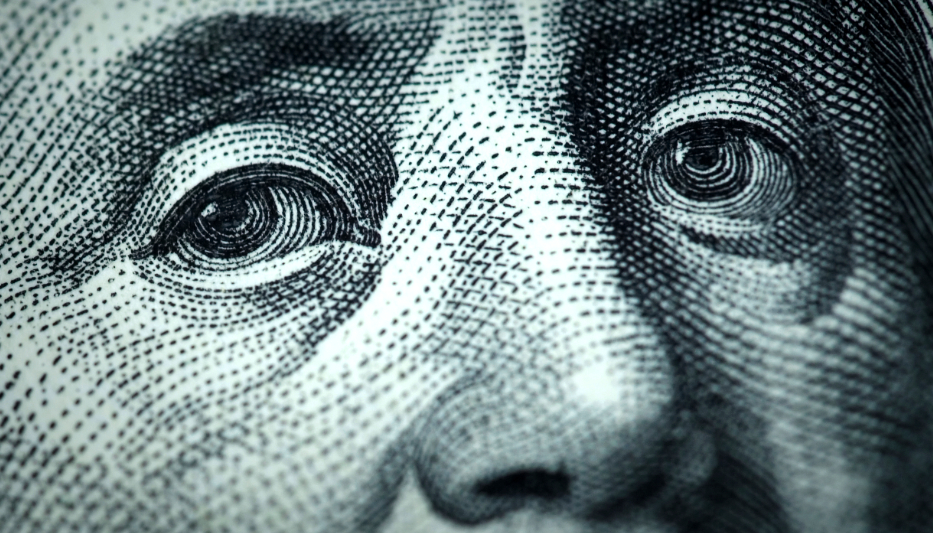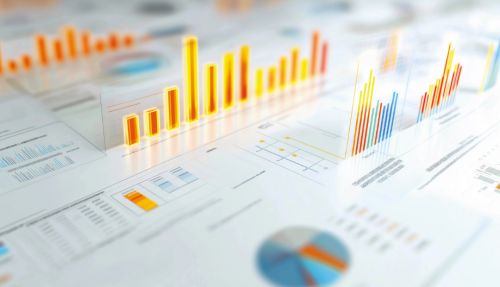All
The Foreign Interference Loophole
by Samuel Diamond

How Wall Street nearly broke the U.S. economy … again
On March 8, 2022, U.S. crude oil prices hit $123.64 per barrel. The price spike was widely regarded as a product of geopolitical crisis; Russia had launched a full-scale invasion of Ukraine, and the U.S. responded by banning imports of Russian oil.
But here’s the thing: on March 8, U.S. crude oil stocks totaled more than 411 million barrels. This was slightly below the five-year range, but, according to most market observers, not nearly low enough to inflate prices so much so quickly. (By comparison, the last time crude inventory levels were this low, on January 19, 2018, the price was only $63.38 per barrel.)
So what happened? Was it excessive speculation, a usual suspect in commodity market disruptions? And, if so, don’t those markets have rules limiting speculation?  Yes and no, says Michael Greenberger, a homeland security and financial law professor at the University of Maryland Carey School of Law. Greenberger is best known as one of the few people who predicted the subprime mortgage crisis of 2007-2008. That should have been the last time Wall Street broke the U.S. economy.
Yes and no, says Michael Greenberger, a homeland security and financial law professor at the University of Maryland Carey School of Law. Greenberger is best known as one of the few people who predicted the subprime mortgage crisis of 2007-2008. That should have been the last time Wall Street broke the U.S. economy.
Historically, exchange-traded commodity futures have been regulated to bar excessive speculation. However, a major “loophole” has been found in the non-exchange-traded commodities market — also known as the swaps market — which is notionally valued at several hundred trillion dollars per year worldwide.
For the uninitiated, a swap is basically a private hedge that commodity producers and consumer business entities can use to bet on what the price of any commodity, from crude oil to corn, will be at some point in the future. Importantly, swaps traders never use a swap to buy or sell an actual barrel of oil or bushel of corn. All swaps business is done on paper.
The passage of the Dodd-Frank Act in 2010 required for the first time that almost all U.S. swaps would be regulated by the Commodity Futures Trading Commission (CFTC) in a manner mimicking existing rules on exchange-traded futures, including, most importantly, controls on excessive speculation.
It took the CFTC about three years to implement the Dodd-Frank regulation of the swaps market. The last step in that process was to decide when a swap was a “U.S. swap” and thus regulated by Dodd-Frank, and when it was “foreign” and thus outside of U.S. commodity regulation.
“Ninety percent of trading in swaps is done by four big U.S. bank holding companies —Goldman Sachs, JP Morgan, Bank of America and Citibank — serving as the counterparty, or swaps dealer, to private swaps users,” notes Greenberger. “Boilerplate contract language first used in 1992 required these U.S. bank holding companies to ‘guarantee’ swaps executed by their subsidiaries, including foreign subsidiaries.”
Dodd-Frank gave the CFTC oversight of virtually every swap entered into by U.S. banks, whether those trades happened on Wall Street, Main Street or Pluto.
But there’s a catch.
In July 2013, after over 50 CFTC Dodd-Frank rules were finalized, the CFTC issued an 84-page, triple columned “Interpretive Guidance and Policy Statement Regarding Compliance With Certain Swaps Regulations,” advising when a swap should be considered a U.S. swap or foreign swap.
Reflecting the statutory language of Dodd-Frank, the CFTC document made clear that a swap executed under the auspices of a U.S. bank holding company or any corporate entity therein, or a swap that includes U.S. counterparties or otherwise has a meaningful impact on the U.S. commodity markets, would be deemed a U.S. swap regulated by Dodd-Frank.
In what was clearly an aside, Footnote 563 (of 620) stated that Dodd-Frank does not apply “if a non-U.S. swap dealer … relies on a written representation by a non-U.S. counterparty that its obligations under the swap are not guaranteed with recourse by a U.S. person.” This was already widely understood due to the aforementioned standard contract language.
In August 2013, major U.S. swaps dealers seized on this single sentence within Footnote 563 and — without telling the CFTC or any other regulators — changed the boilerplate language of existing and future swaps contracts. The new contract language eliminated any guarantee given by a U.S. person, including the four major U.S. bank holding companies. The swaps dealers then internally took the position that swaps owned by a foreign subsidiary of a U.S. holding company are not regulated.
“In practice, what this means,” according to Michael Greenberger, “is that a swap governing all commodities fully negotiated and executed in the U.S. by the big U.S. bank holding companies — even with a U.S. counterparty — but thereafter ‘assigned’ to a non-guaranteed foreign subsidiary, is suddenly deemed by these huge swaps dealers to not be governed by Dodd-Frank.”
Greenberger says that “almost everything about these swaps relates to the U.S. except when they are fully executed, they are sent off to a foreign subsidiary.”
The CFTC caught wind of this practice during the Obama era and in October 2016 proposed a rule that would have put the kibosh on the big banks’ de-guaranteeing practice. However, the final rule could not be completed before Trump took office in January 2017. Under his administration, the proposed rule was withdrawn and financial regulators went a step further in affirming the banks’ interpretation of CFTC swap rules.
Because purported “foreign” swaps are not governed by controls on excessive speculation, these markets are dominated by parties that do not care at all about actual commodity prices paid by wholesalers, retailers, and their customers. “There is no beneficial tension between producers wanting the highest price and consumers wanting the lowest price,” Greenberger says. “Speculators, who do not care what the price is, dominate these unregulated markets.”
Like other futures contracts, swaps aren’t inherently bad. The market instrument was created for hedging by commodity users, the businesses that buy and sell oil or corn. “The problem we saw in 2008, before Dodd-Frank, is that when no swaps were regulated, the oil futures markets were dominated by speculators and oil went to its world record high of $147 a barrel,” Greenberger says. “The markets went crazy.”
This is how the U.S. economy once again finds itself on the brink of recession. This is how U.S. heating oil retailers find themselves paying wholesale prices on the order of $5 per gallon. This is how U.S. consumers could find themselves forced to decide between paying for heat and paying for groceries whose prices have also been inflated by wanton “foreign” swap trades of agricultural commodities.
According to Professor Greenberger, President Biden along with his CFTC could close the loophole today via executive action. “The president should enact the Obama-era CFTC’s corrective rule on an emergency basis,” Greenberger says. “An emergency rule would bypass the usual public comment period for the purpose of perpetuating an immediate change.”
Short of that, Biden could help stabilize U.S. commodity prices by just mentioning Footnote 563 — what we’re calling “the foreign interference loophole” — in televised remarks. Greenberger says that alone would drive heating oil and gasoline prices down as much as 25% by sending “non-U.S. swap dealers” a signal to stop engaging in system-shocking speculation.
“Even now, as futures prices begin to fall on recession worries, the spot prices we’re seeing do not necessarily reflect the reality of the supply and demand picture, and that’s primarily the result of excessive speculation in the swaps market,” Greenberger says. “That’s why we need to get the word out about this.”
Until then, U.S. consumers will continue to be vulnerable to artificially inflated commodity prices that drive up the costs of food, energy, and other everyday necessities.
Related Posts
 2025 Hedging Survey
2025 Hedging Survey
Posted on April 29, 2025
 Trump Policies and Energy Markets
Trump Policies and Energy Markets
Posted on April 28, 2025
 Hedging Strategies for Next Winter
Hedging Strategies for Next Winter
Posted on March 10, 2025
 A Volatile Start to the 2024-2025 Heating Season
A Volatile Start to the 2024-2025 Heating Season
Posted on December 9, 2024
Enter your email to receive important news and article updates.
